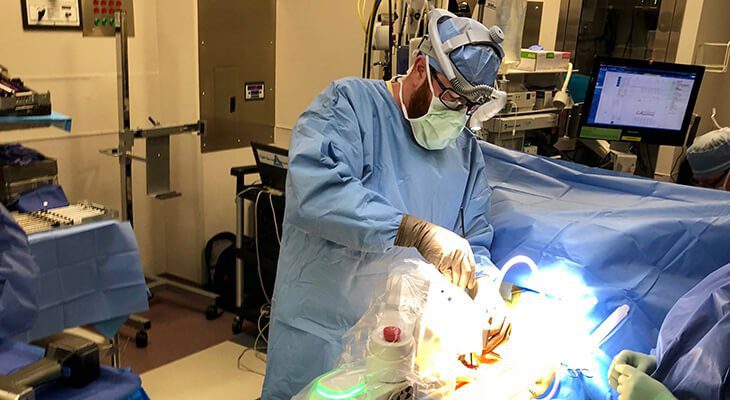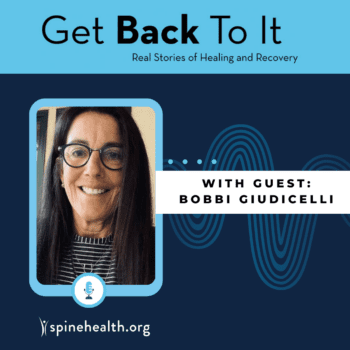
Dr. Jeffrey Gum, Norton Leatherman Spine Center
Dr. Jeffrey Gum is a spine surgeon who specializes in adult and pediatric spine deformity surgery (things like scoliosis, kyphosis, and revision surgery) and Robotic-assisted minimally invasive surgery, among many other important procedures. He is also a member of the National Spine Health Foundation’s Medical and Scientific Board.
One of the most important parts of his work is the extensive research he does, which is focused on adult spinal deformity, robotic-assisted spine surgery and the economics of spine care. In that realm, he works with national and international research collaborative groups.
>>>>>> Spine Surgery: When Should You Get a Second Opinion?
Robotic-Assisted Spine Surgery
One of the most exciting parts of spine research and surgery right now is robotic-assisted spine surgery. In this procedure, patients receive less invasive procedures, smaller incisions, less bleeding, and faster recovery times.
Research has played a huge part in allowing the emergence of robotics, which is truly helping so many patients. It’s also helped in lowering the use of narcotics, according to Dr. Gum, which is important in light of the opioid crisis that overtook so many parts of the nation. Dr. Gum expanded on why he feels drawn to the area of robotics:
“To me, it’s a conduit to what the future is going to look like. When I got interested in robotics, there was a lightbulb that went off. We’ve changed the face of our OR quite a bit over the pat 10-20 years.
What I see our OR looking like in 20 years is drastically different and robotics is going to be an integral part of that. When I have thoughts or perspectives like that, I want to be a part of that.”
Research and Robotics
How do we improve robotics? Research. This is one of the most vital parts of spine health. In the world of surgery, spine is one of the most expensive areas of healthcare. Research also allows the ability to discover more cost-effective ways care for spine patients.
“If you look at the cost to society, the cost to hospitals, insurance companies…it is not typically cheap procedures,” said Dr. Gum. “Our job to show that what we do is valuable. With research, we need to show we are not only improving outcomes, but also cost of care.”
>>>>>> Dr. Martin Pham: The Life of a Surgeon
In addition to better outcomes, research drives the discussion of helping people not to fear surgery. It can be a scary prospect for some, but with time, data, and research, more patients can be assured that they have the opportunity for a positive outcome.
“My job as a surgeon is not to convince you to have the surgery,” said Dr. Gum. “I say, here’s the facts, I help guide them. If you don’t give them reasonable expectations, they’re not going to be happy.”
In the interview, Dr. Gum assures viewers that predictive analytics and larger data sets have allowed surgeons to customize treatment plans. In just the past decade, spine surgery has become more tailored to individuals and this helps with positive outcomes.


